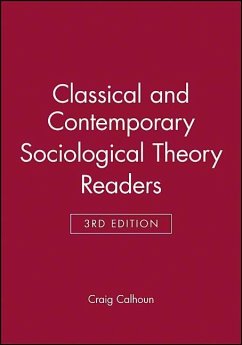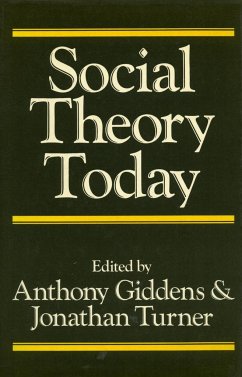Nicht lieferbar

The Emergence of Sociological Theory
Versandkostenfrei!
Nicht lieferbar
Now published by SAGE, this scholarly text covers the first one hundred years of sociological theorizing, from 1830-1930, focusing primarily on Comte, Spencer, Marx, Weber, Simmel, Durkheim, and Mead. The text provides an in-depth examination of these early sociological theorists with biographical background, analysis of key works, major influences, critical insights, and also answers the question, 'What do these ideas tell us about the basic forces that shape the social world?' Posing this question for each theorist adds a unique perspective to the text and distinguishes it from other sociolo...
Now published by SAGE, this scholarly text covers the first one hundred years of sociological theorizing, from 1830-1930, focusing primarily on Comte, Spencer, Marx, Weber, Simmel, Durkheim, and Mead. The text provides an in-depth examination of these early sociological theorists with biographical background, analysis of key works, major influences, critical insights, and also answers the question, 'What do these ideas tell us about the basic forces that shape the social world?' Posing this question for each theorist adds a unique perspective to the text and distinguishes it from other sociological theory books. In addition, it also includes material on the enduring models and principles of the theorists' work that continue to inform sociological theory today.







